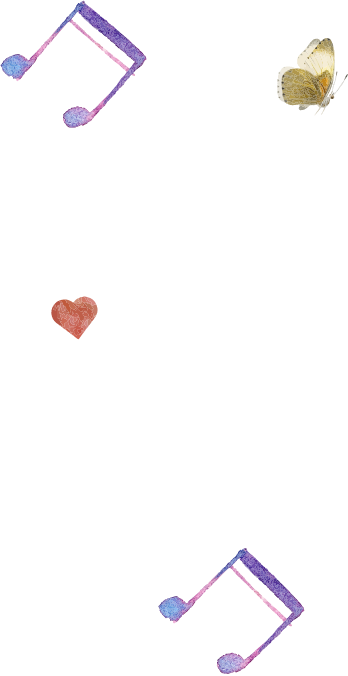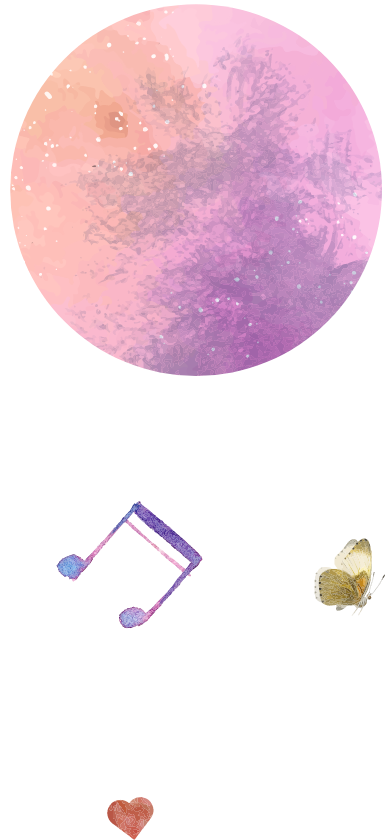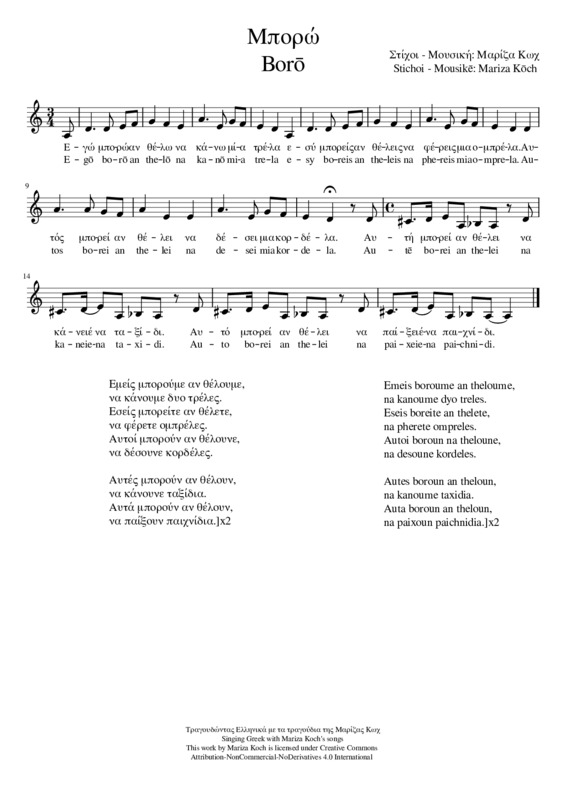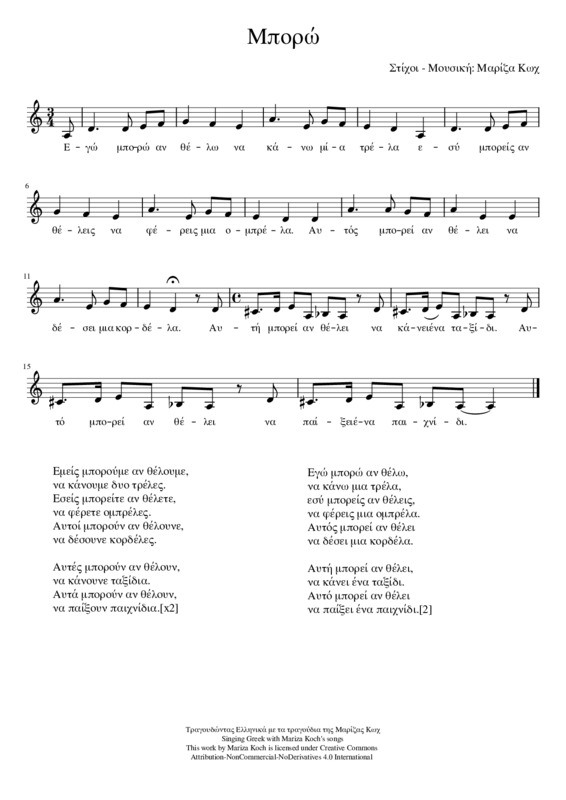
Borō

Borō
Pronunciation
Articulation of double consonants /μπ/ (/mp/) and their use in Greek language [μπακάλης (bakalēs, grocer), μπαμπάς (bampas, dad), μπουμπούκι (boumpouki, bloom), μπαούλο (baoulo, chest), etc.]. Think of other words containing this double consonant in the Greek language. Please note that /μπ/ is transliterated as /b/ when found at the beginning of a word, and as /mp/ when found in the middle or at the end.
Speech Comprehension and Production
Conjugate verbs ending in -ω (-ō) for each person i.e. μπορώ (borō).
The children make rhymes based on the verb μπορώ to any person they choose.
The personal pronoun εγώ - εσύ -αυτός-ή-ό (egō, I - esy, you - aytos-ē-o, he-she-it.
Feminine nouns ending in -a [τρέλα (trela, craziness), ομπρέλα (omprela, umbrella), κορδέλα (kordela, ribbon) and neutral nouns ending in -ι-(-i) [ταξίδι (taxidi, trip), παιχνίδι (paichnidi, game). Formation of plural nouns.
The pupils express their personal desires and capabilities and then produce small paragraphs which they share with their classmates. They then address them to other persons following the structure of the song (εγώ μπορώ αν θέλω..., egō borō an thelō).
The children make rhymes based on the verb μπορώ to any person they choose.
The personal pronoun εγώ - εσύ -αυτός-ή-ό (egō, I - esy, you - aytos-ē-o, he-she-it.
Feminine nouns ending in -a [τρέλα (trela, craziness), ομπρέλα (omprela, umbrella), κορδέλα (kordela, ribbon) and neutral nouns ending in -ι-(-i) [ταξίδι (taxidi, trip), παιχνίδι (paichnidi, game). Formation of plural nouns.
The pupils express their personal desires and capabilities and then produce small paragraphs which they share with their classmates. They then address them to other persons following the structure of the song (εγώ μπορώ αν θέλω..., egō borō an thelō).
Music Activities
Change from triple into quadruple meter, dotted quarters and eighth notes. Practice in rhythmic shapes of triple and quadruple meters containing dotted quarters and eighth notes which will be composed by the pupils. Divide the class into groups, where each group composes a rhythmic pattern containing dotted quarters or eighth notes in a triple meter. The pupils present the rhythmic patterns in a sequential order and then they all play their pattern at the same time, aiming to maintain the triple meter. Alternatively, they can hold three patterns and the class, divided into three groups, will play them in canon.
Sing with different timbre of voice (sad, cheerful, angry, melancholic, with excitement, etc.).
During singing, the class could be divided into groups and each group could sing a verse, arranged in a circle.
While in a circle, the pupils sing the song and bend their knees temporarily every time a personal pronoun is heard.
Distinguish which sounds can be heard in a classroom/ at the beach/ in the woods/ in a city, etc. Create compositions that deliver different soundscapes. Record and classify the sound into natural, anthropogenic and technological.
What can I hear? A child sitting on a chair has his eyes closed and an Orff instrument by his side. The other pupils try to pick up the instrument by dragging it without being heard. Obstacles can be put in place so that the game gets more difficult. Whoever is heard leaves the game.
Sing with different timbre of voice (sad, cheerful, angry, melancholic, with excitement, etc.).
During singing, the class could be divided into groups and each group could sing a verse, arranged in a circle.
While in a circle, the pupils sing the song and bend their knees temporarily every time a personal pronoun is heard.
Distinguish which sounds can be heard in a classroom/ at the beach/ in the woods/ in a city, etc. Create compositions that deliver different soundscapes. Record and classify the sound into natural, anthropogenic and technological.
What can I hear? A child sitting on a chair has his eyes closed and an Orff instrument by his side. The other pupils try to pick up the instrument by dragging it without being heard. Obstacles can be put in place so that the game gets more difficult. Whoever is heard leaves the game.
Cross-thematic Connections - Greek Culture
Interdisciplinary concepts: balance, conflict.
Relationship between desire and ability, "θέλω" (thelō, to want) and "μπορώ" (borō, to be able to): How does it affect one another? Are there any limits to the things that we want to do and those that we cannot do? What are their limits? Discuss.
Make a visual display of our desires and discuss.
The pupils take note of some visual works and then each of them says a phrase with the verbs μπορώ (borō) and θέλω (thelō) on the occasion of this work.
Relationship between desire and ability, "θέλω" (thelō, to want) and "μπορώ" (borō, to be able to): How does it affect one another? Are there any limits to the things that we want to do and those that we cannot do? What are their limits? Discuss.
Make a visual display of our desires and discuss.
The pupils take note of some visual works and then each of them says a phrase with the verbs μπορώ (borō) and θέλω (thelō) on the occasion of this work.
Age level
7-11 years old
Language level
Beginner
Clothing
Game
Me tē Mariza tragoudō ellēnika mathainō





